Astrology Today
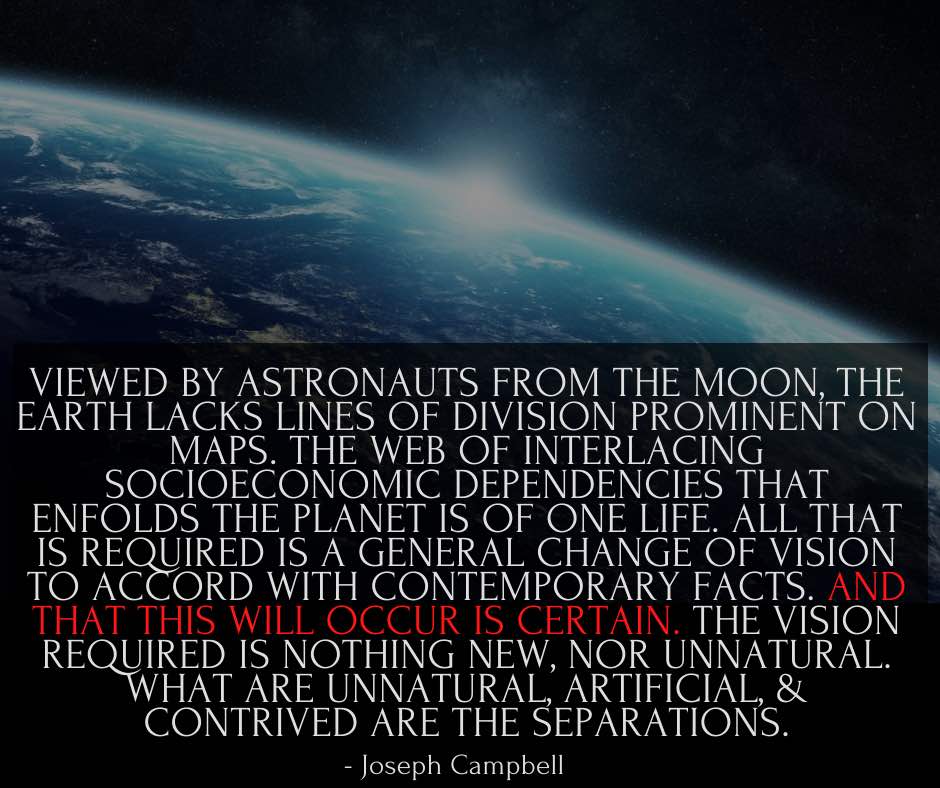
Covid is the prime topic of conversation from politicians, scientists and economists through to conspiracy theorists and celebrities. Elevated above all this noise, comes the cosmic perspective.
Astrology 2020
This article explores the insights that astrology and numerology offer during this time of global upheaval.
Astrology holds that the interplay between planets causes a collective impact. We’ll look at 3 important influences of astrology for today.
Saturn in Aquarius
Saturn spends around 2.5 years in each planet. Saturn rules structures (governments, nations, institutions etc) while Aquarius is the sign of the rebel. It is fuelled by a desire to tear down what is outdated and replace it with something better and more equitable.
When this planet and sign last constellated back in 1991, the Berlin Wall came down, borders opened and free elections ousted Communist regimes in Eastern Europe. Before the year was out, the Soviet Union dissolved into its individual republics.

The last transit of Saturn into Aquarius reunited those separated by the Berlin wall
Saturn in Aquarius 2020
In March 2020, Saturn dipped into Aquarius where it will largely remain for the next three years. Saturn being the planet of restriction and structures, March 2020 was when the government here in Australia started imposing safety laws and social distancing measures.
Initial annoyance over the imposition of rules and restrictions soon gave way to a greater respect for other people's wellbeing.
Woke up this morning
I suddenly realised
We're all in this together
The musician Ben Lee was ahead of his time when he wrote the song, ‘We’re all in this together’ 15 years ago.

2020 is a double 2 year in numerology, the 2 archetype being to do with cooperation vs divisiveness.
Alonetogether
The hashtag #alonetogether has become one of the most popular of 2020.
Aquarius rules technology and this year has seen the phenomenal rise of online meetings such as Zoom. The sign also rules community and despite travel restrictions, geographical distance is no hindrance to being able to connect with like-minded people.
Australian comedian Chris Franklin turned his frustration into a poem about all the selfishness he witnessed as the coronavirus outbreak spread.
He named it “Stay The F*ck@ At Home.”
It included Aquarian themes such as this one:
“If you need to contact family/ Use Facebook, Skype or phone/ We’ve got the #@#% internet/ So stay the $@%! at home.”

In true Aquarian fashion, he realises that humour and music are more effective ways of getting a point across than hoping people will listen to dry political press conferences about the issuing of rules and containment.
Franklin addresses people’s qualms about having to self-quarantine and turns many of the complaints on their head.
Franklin shared the poem as a video, saying that it “could even be a song” and improvised the closing verse. He then posted the poem on his Facebook page on March 24.
68-year-old American musician, Bob E. Kelly, was sent the poem via the internet by a friend. Kelly turned the poem into a song, performed it on his piano and then uploaded it to Youtube, not expecting much to come of it.
The next morning he noticed it was starting to spread. A week later Franklin started working with some Australian musicians to create a rock version which he has since launched.
Meanwhile, Kelly had heard that kids were singing the expletive-laced song. So he recorded a child-friendly version named "Stay the Heck at Home."
Saturn Aquarius
One way that progressive and freedom-loving Aquarius has been working with the restricting influence of Saturn is by upsetting the structure of work.
Commuting to work is accepted as a necessary suffering of the modern age.
A study instigated by economist Daniel Kahnemanan found that adding another 20 minutes of commuting each day has the same negative impact on job satisfaction as receiving a 20% pay cut.
Swiss economists Alois Stutzer & Bruno Frey conducted a study drawing on 20 years of information from German workers which revealed that people with long commutes had systematically lower subjective well-being and less life satisfaction than their non-commuting counterparts.
No matter how much you enjoy your job or home life, a long commute will make you unhappier and you will never get used to it.
As housing affordability has forced people to live further away from the cities they work in and urban populations grow, commute times have grown progressively longer for people.
Technology has long promised the freedom of working remotely but employers have tended to resist offering it.
Enter Covid and things have changed phenomenally.
Last week I spoke to a bookkeeper who recently moved away from the city to live somewhere quieter with more of a community.
She was only able to do so because her office manager recently declared that staff will never be going back to 5 days in the office.
She now gets to work from home with just an occasional trip to the city required to maintain her connection with other staff. In just a couple of months, her stress levels have dissipated and her wellbeing improved.
Work Life Balance
No Work Wednesday
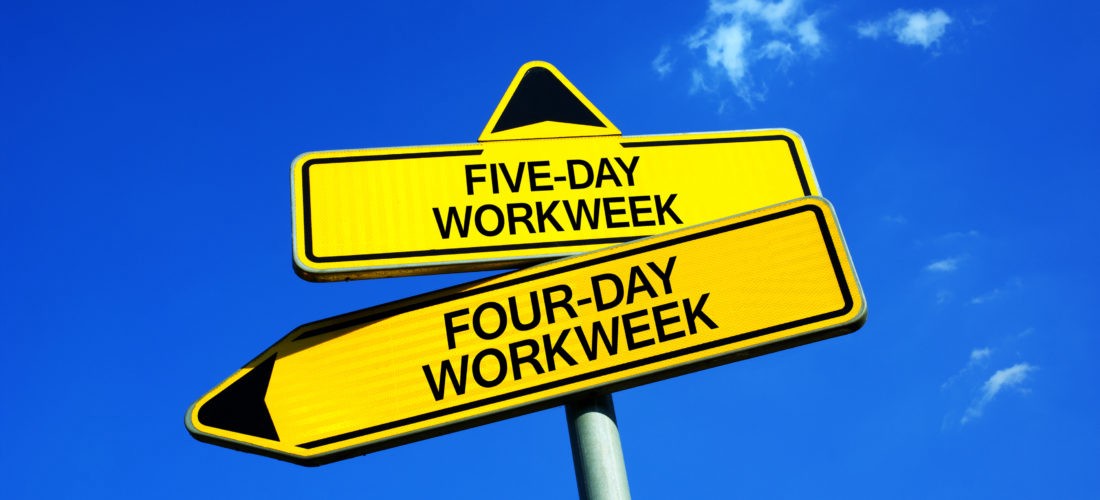
Rethinking our work lives through reclaiming our time
Melbourne digital agency Versa completed a year-long experiment of closing its doors each Wednesday.
They found that staff retention and happiness soared while sick leave plummeted. As for the business, it became much more profitable.
A recent headline from the Huffington Post reads: The Pandemic Could Finally Usher In The 4-Day Workweek.
The article begins:
“Government employees of the small municipality of Guysborough, have worked half the week in the office and half the week at home for the last few months in order to reduce contact with each other and limit the spread of the coronavirus. Now, as the municipality plans to fully reopen its offices to the public, it’s decided to try something new: a four-day workweek.
Employees were given the choice of staying on the old five-day schedule if they wanted to. But no one did.”
Compressing 40 hours of work into four days instead of five has been a good first step but we need to press for more.
In the Netherlands, the average weekly working time is under 30 hours a week.
Many companies in Europe are cutting workweeks, though not wages, from 36 hours (five days) to 28 hours (four days) to reduce burnout, make workers happier, more productive, and more committed to their employers.
Aquarius fights for greater equality and individual freedom.
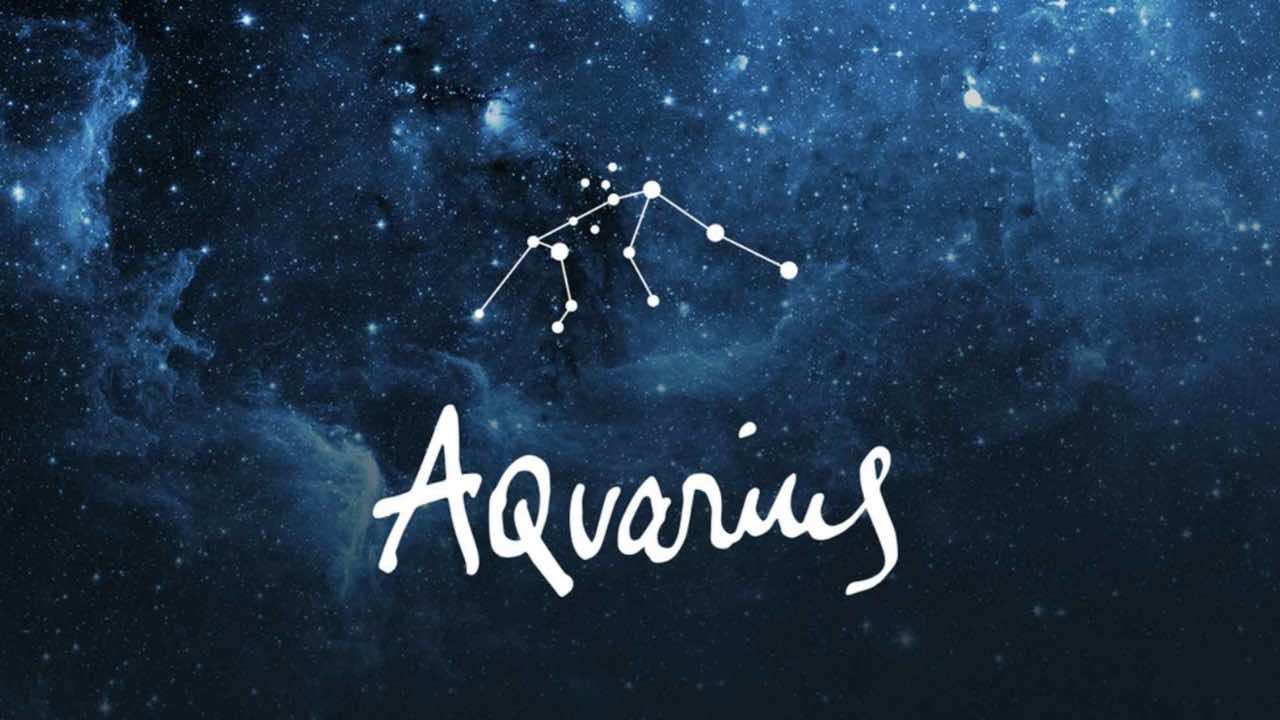
This is the dawning of the age of aquarius - James Rado
Age of Aquarius
Every 2000 years we have a zodiac sign rule collectively. Up until recently, the water sign of Pisces held that mantle.
Being a fairly guileless and passive sign, it contributed to humanity entrusting responsibility to governments, religious institutions and higher authorities.
One of the hallmarks of this new Aquarian age is that individual responsibility and grassroots change is seen as a better approach.
Social conscience and humanitarian causes are dear to Aquarius. Gentle Pisces gets ruffled and overwhelmed by change and difficulty, while Aquarius, an air element, is much more comfortable with chaos.
Pluto Conjunct Saturn
Collective Chrysalis
Astrology differentiates fast-moving, personal planets, with that of slower-moving, more transpersonal planets.
Saturn symbolises the difficult tasks we are issued with and looks at our social responsibility.
As for Pluto, it is the furthest most planet (albeit a dwarf planet) that we recognise as having a big bearing on us.
Pluto focuses on facing our shadow and the underworld. Power and truth are integral themes for this planet.
In January this year, Pluto and Saturn came close to each other in the sky, magnifying their effects on one another.
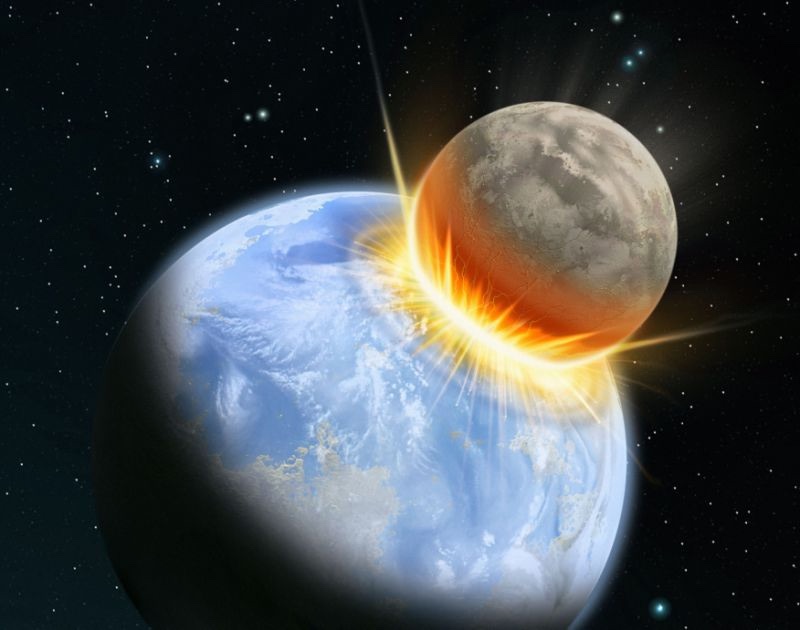
Pluto Conjunct with Saturn - Constraint, division and intensified tension
Stopthespread
Saturn is harsh, imposing rules and isolation.
Collectively we are living through a 4 numerology year (2+0+2+0=4) which is also the archetype of restriction, adulthood, endurance etc.
Since Covid, borders have shut, travel has slowed to a trickle and governments brandish new laws and means of applying control.
As I write this, Australia has begun its first enforced curfew since WWII, albeit in just one state so far.
Pluto serves to bring death and then rebirth.
And so we find ourselves in a collective cocooning.
Astrology focuses predominately on the major planets but astrologists also take into account asteroids, dwarf planets and other influences.
It has been argued that the third force at play during 2020 is the most cataclysmic.
Pluto and Eris
Pluto entered the sign of Capricorn in 2008. It remains there until 2023.
Capricorn is a conservative archetype which attempts to preserve existing systems and structures.
When Pluto enters the sign, it attempts to purge systems that are outdated, corrupt and dysfunctional.

Capricorn rules banking & finance
The move of Pluto into the sign in 2008 was marked by the Global Financial Crisis, where the greed of investment bankers issuing sub-prime loans caused a global collapse in financial markets and economies.
2009 began with the bitcoin network coming into existence.
After investment bankers managed to get bailouts, 2011 brought the Occupy movement as a reaction to the further widening of the wealth gap between the top 1% and the remaining 99%.
Abuses of power occurring in the structure of defence forces were brought to light with WikiLeaks.
In early 2010, Chelsea Manning passed on classified information to WikiLeaks.
Then in 2013, Edward Snowden began leaking top-secret documents from the National Security Agency.
The Egyptian revolution of 2011 demonstrated the power of solidarity and how technology can be utilised to overthrow despots.
When it came to law and order, police brutality has been under the spotlight as video footage of abuses have been shared through social media. #Blacklivesmatter is gaining increasing traction.

Our collective aversion to connecting with those around us is becoming endemic in modern life
Malcolm Gladwell’s recent work, Talking to Strangers: What We Should Know About the People We Don’t Know, argues for a fundamental rethink of law enforcement and the misguided idea that agitating citizens brings about greater civic order.
In 2015, the documentary The Hunting Ground exposed the failure of American universities to confront and eradicate campus rape.
The #metoomovement has thrown light on sexual harassment and abuse, with the Harvey Weinstein story demonstrating how endemic this has been.
As for the longstanding covering up of sexual abuse in the Catholic Church, 2019 saw
Pope Francis declaring zero tolerance for abusers.
Part of the sweeping changes to how the church deals with cases of sexual abuse involved abolishing the rule of pontifical secrecy that previously covered them.

Pluto destroys what is unhealthy in order to build something better
The above examples are just a handful of illustrations as to the purging and transformation of the establishment we have seen since 2008.
If Pluto is seen as the heavy hitter of the zodiac, then the lesser-known dwarf planet, Eris is the sledgehammer.
Pluto takes around 250 years to orbit the sun, while Eris takes over 550 years to complete a single revolution.
We can liken this to the impact of a yoyo. Give a yoyo only a small amount of string and the pain it can inflict by being swung about is fairly minimal. Add more string and the wallop becomes potentially lethal.
Greek mythology regards Eris as the sister of Mars, the god of war. Myth holds that she seeks out people in pain and finds delight by inflicting even more pain upon them. She also goes by the name, Discordia, suggesting that she thrives on planting discord.
Eris captures the human ability to find belonging through declaring a common enemy. Think of the misfits and disaffected that have made up white supremacy groups as an example. Now take this on a large scale, thinking about the range of beliefs and issues that are causing massive polarisation.
In January 2020, the agitating Eris caused a friction point by squaring with Pluto, lord of the underworld.
There is a section of the populace that have splintered away in all manner of divisiveness, political and otherwise.
A plethora of stories has emerged where long-held friendships have quickly devolved when one person’s values have not been shared by the other.
For example, Jane Brown places great importance on following isolation and social distancing rules, while her friend Mary Beth believes it to be over the top and unfair.
Mary decides to renovate her bathroom while she is locked away at home. After Mary shares a photo on social media showing her purchases at the local hardware store, Jane criticises her behaviour publicly.
Mary reacts with a cutting remark, Jane responds and after much back and forth the friendship collapses before the day has ended.
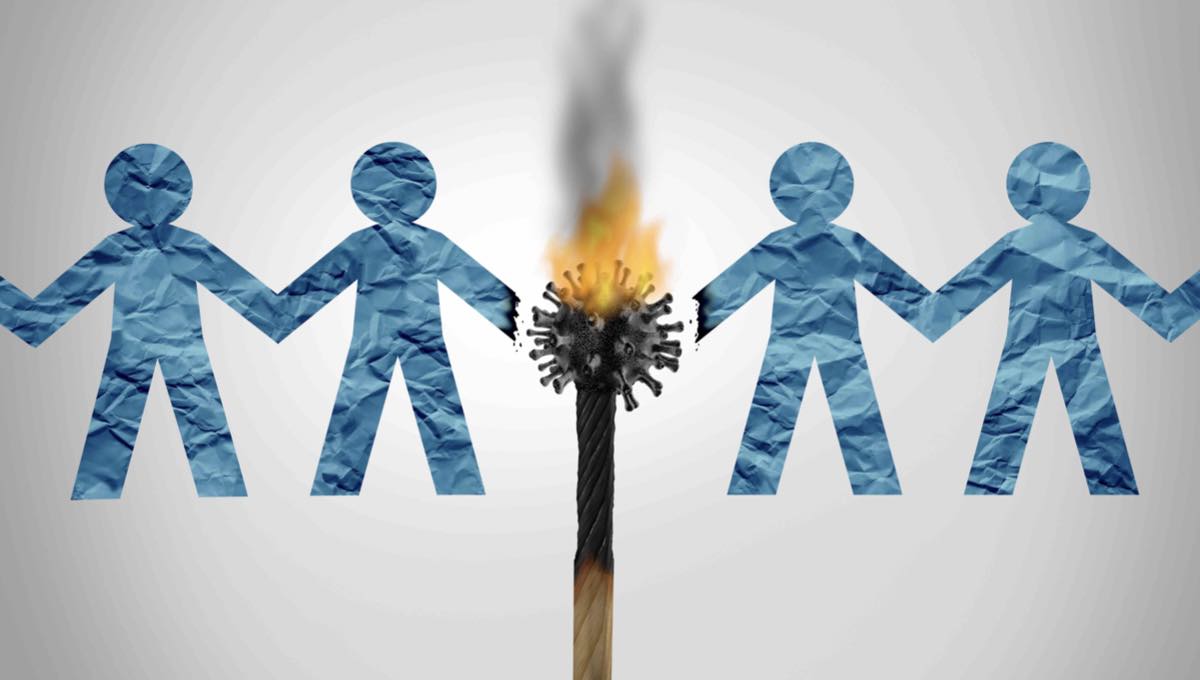
At a time when we most need to work together, divisiveness has never posed more of a challenge
On the more noble side of the spectrum, part of the population is out there advocating for human rights and working to help the less fortunate, be it neighbours and friends or those who’ve become extremely vulnerable during Covid, such as the elderly.
The End of Business as Usual
Few people relish having a strong Pluto influence enter their lives.
Destruction, pain, confusion and all the associated difficulties of a death accompany it.
But invariably, those who come out the other side often speak about the positive transformation they experience.
One way or another, things are changing. Whether we turn our current situation into a new beginning or a slide into oblivion is up to us.
Arguably the best quality of warmongering Eris is her insistence that pressure brings out the best in us.
Before Covid struck it seemed humanity was living in a state of collective denial.
With greater wealth disparity than perhaps any time in human history, we remained mired in the unsustainable principle of endless growth that capitalism is founded upon.
Cruise ship companies were spending billions on building ships where each one attempted to be more extravagant than the next.
Do passengers really need to walk up a set of stairs consisting of millions of dollars worth of crystals?

While millions walk for hours each day to source drinking water, a fortunate few walk down staircases costing millions
Escapism through opioids has been rife as is the problem of screens replacing human connection.
Death by overwork, which the Japanese name Karōshi, was seen as acceptable while impending environmental collapse, refugee displacement and a spate of other social issues have been seen as too difficult to solve.
Apathy, overwhelm, defaulting to survival mode and divisive politics, kept change at bay.
Covid has stirred things up by revealing our fragility and need for interdependence.
Pluto in Capricorn
If Pluto in Capricorn is working to shake up the established order, Eris is inviting us to find the courage to fight for a better and more equitable world.
Permaculturalists, activists, impassioned children protesting climate change, indigenous wisdom cultures, whistleblowers and changemakers of all kinds are working in big and small ways to rewrite the cultural script.
A few decades ago, Joseph Campbell suggested that the overview effect (seeing the Earth from space) had the potential to bring about a tipping point where humanity moved beyond the separation myth and embraced our interconnectedness and interdependence.
Roseto Effect
In his book, Outliers, social scientist Malcolm Gladwell shared the story about 11 Italians setting sail to New York back in 1882. After finding jobs in a slate quarry in Pennsylvania they sent word back home that there were jobs available in America. 1200 Rosetans immigrated to America and formed their own community calling it Roseto, in honour of their hometown in Italy.
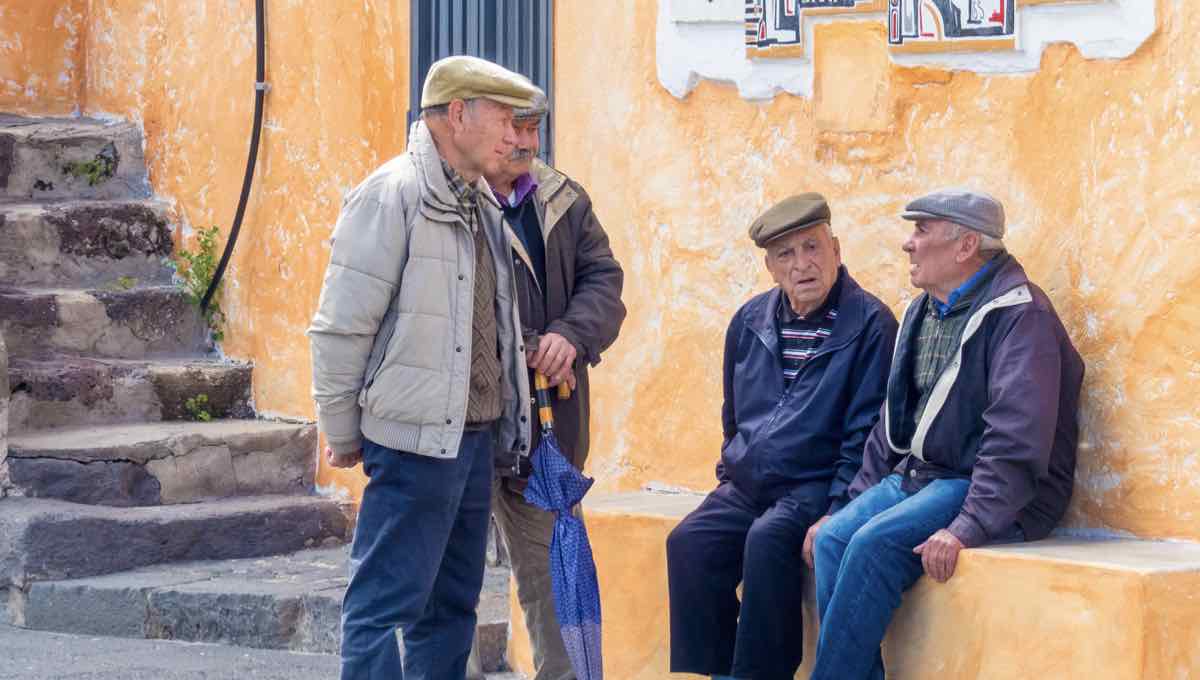
The longevity of the Roseto community defied science
Dr Stewart Wolf, who practised in the community for close to 20 years, never saw a single case of heart disease. There was no suicide, no alcoholism, no drug addiction and no crime. The majority of people died of old age, living to over 100 years old.
Dr Wolf suspected their longevity came from good nutrition. What he found is that over 40% of their calories came from fat, they did little exercise and smoked heavily. Many were obese.
Nearby towns with the same climate and environmental influences had an incidence of heart disease 3 times that of their Rosetan neighbours.
And so he thought perhaps it was genetics. After studying their ancestors he found this wasn’t the case.
Lastly, he considered if their longevity could be a function of culture. There were no gated communities or segregation in Roseto. He studied how they lived and related to each other:
∙ They often stopped by one another’s homes just to chat and connect
∙ They would cook for each other and attend community events together
∙ Welfare wasn’t drawn on because they each cared for the less fortunate
∙ Some homes had three generations of relatives living together
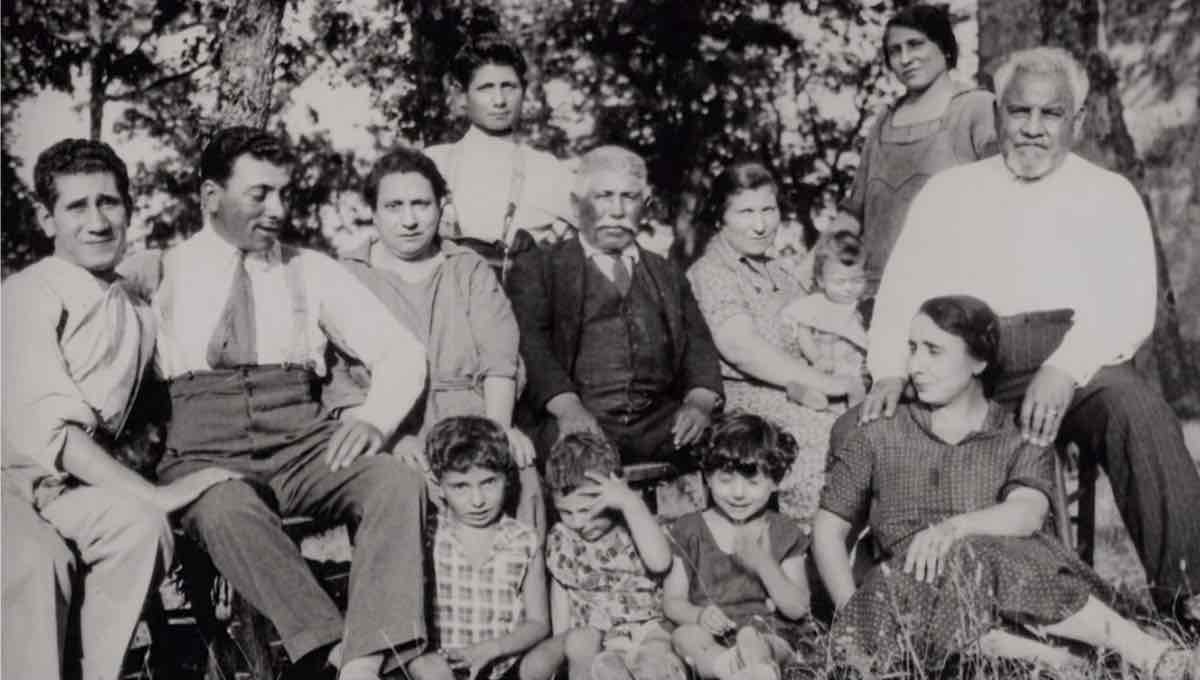
Globalisation, the busyness of modern life and smaller family sizes has had some downside
Dr Wolf and the sociologists who carried out the research concluded that their social structure created a nourishing, calming and healthy environment for those who lived there.
A couple of years back there was a huge snow dumping in the town I live, which brought down power lines and shut off roads. Walking around my local streets I noticed everyone was outside, interacting and I met more of my neighbours in that one morning than I did over the 4 years of living here.
After a life-threatening accident, filmmaker Tom Shadyac questioned his way of life and what he held as important. His search for greater meaning saw him interview philosophers, scientists and others to find out ways - individually and communally - that people can improve the way they live.
His documentary, I AM, is an inspiring example of the power that is unleashed when we move away from the separation myth and back to interconnectedness.

What role are you playing in this time of monumental transition?
Leo Tolstoy once quipped that “Everyone thinks of changing the world, but no one thinks of changing himself.”
Changing ourselves begins with understanding ourselves. Esoteric tools such as astrology and numerology are one means of gaining greater awareness both individually and collectively.
On my Facebook page is a video I have shared which elaborates on the numerology influences of 2020 and how the polarity of collaboration/divisiveness is needing to be integrated.